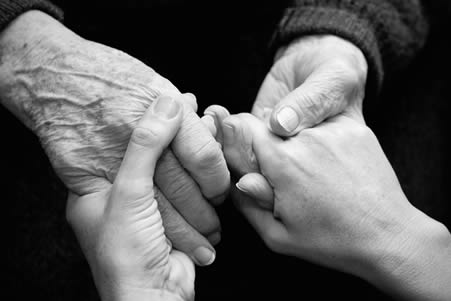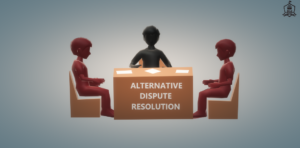A society is a union of distinct type of individuals. Age, sex, ethnicity, religion, social status etc. are the grounds of such differences. In spite of differences, all of them possess certain personal and proprietary interests by virtue of being human. Some of them lack the capacity to protect their own interests owing to physical or intellectual imperfection. This can happen for being too young, or too old and infirm, or being mentally incapable. Law of guardianship exists for the legal protection of such people.
The first known legal recognition of guardianship is probably the 449 BC. Roman Twelve Tables where the concept of “tutor”, similar to present day “guardian” was mentioned. In Bangladesh “Guardians and Wards Act, 1890” is the major legislation governing guardianship. The focus of this act is solely on the custody and guardianship of minor children. The act was enacted by the colonial state, which continued the legacy of Common law, of the supremacy of the paternal right in guardianship and custody of children. Section 17 of the act lays down welfare principal whilst appointing a guardian for minor children but makes it subject to personal law of the minor.
Both Hindu and Muslim laws of guardianship confer supreme power to the father over minor’s guardianship leaving little or no entitlement to the mother. Father is the natural legal guardian of minor children under both laws. Although Hindu law permits mother to be the legal guardian of her children after the father’s death, it authorizes the father to exclude the mother from this right by appointing a testamentary guardian. In Muslim law, a mother can never be the legal guardian of her minor children although she is entitled to their custody till certain age subject to the superintendence of the father.
Families being torn apart by divorce are a rising phenomenon of the modern world, and the worst sufferers thereat are the children of those families. Parents in such event begin legal battle over the children’s custody leaving their future hanging by a thread. Initially court showed favoritism towards traditional personal laws over minor’s welfare while adjudicating custodial matters.
In the case of Ali Akbar v. Mst Kaniz Mayryam the court handed over the custody of the minor son unjustly to his father even though it was clear from the circumstance that his welfare lied with his mother. But matters like this can affect the child’s whole life and should never be decided by fixed rules not considering the child’s welfare and the circumstance at hand.
However, it’s praiseworthy that this trend of prioritizing personal laws over minor’s welfare is now changing and courts are now driven by welfare principal as the paramount consideration in adjudicating custody and guardianship matters. In the case of Zohra Begum v. Sh Latif Ahmed, court ignored the age rules of Hanafi law altogether and handed over custody of the minor son to his mother.
After separation, India enacted “Hindu Minority and Guardianship Act, 1956” which provides that welfare of the minor shall be the paramount consideration superseding all other factors. The British Parliament shifted the emphasis from paternal rights to the welfare of the child and granted equal legal status to both parents through a series of legislations. “Guardianship of Infants Act, 1925” and “Guardianship of Minors Act, 1973” are notable among them.
To the contrary, “Guardians and Wards Act, 1890” remains the only codified law governing guardianship and custody in Bangladesh, which is outdated and as stated above, patriarchal in nature. Despite courts reliance on minor’s welfare on deciding custodial matters, section 19 of the act makes “welfare consideration” subordinate to father’s supremacy as a guardian as per section 19 of the act.
Another problem of guardianship laws in our legal system is that, only guardianship of minor children is recognized and practiced. But guardianship is as much needed for incapacitated adults and lunatics as for minor children. Although lunacy act, 1912 lays down some guidelines regarding appointment of guardian for the insane, this act contains some bizarre and unjust provisions and the fact that lunatics are capable of having legal guardian is not widely known or practiced. Growing older is inevitable in life. A person gradually loses natural productivity and becomes vulnerable, both physically and mentally, as he becomes old. But, the rights of elderlies in Bangladesh are largely abused; many of them are deprived of their basic human needs and ends up being in old home.
Our legal system doesn’t have sufficient provision to protect the rights of such elderlies. Parents maintenance act 2013 was passed with a view to lessen the suffering of the elders but this alone is not enough. Article 27 of the constitution of Bangladesh guarantees right to equal protection of law as one of the fundamental rights. Equal protection of law implies equality of treatment in equal circumstances
Incapacitated adults, minor children and lunatics, all possess the criteria of “being incapable”. From this point of view, all of them share an equal circumstance and entitled to equal legal protection. Not making necessary provisions as to guardianship for elders and insane is a clear violation of article 27. Not giving equal legal status to mother and father as guardian is showing discrimination based on sex and violates article 28 of the constitution. Living up to various constitutional promises shall not be possible by governing an important part of the state through 100 years old laws.
The obsolete and outdated guardians and wards act should be repealed. A new and binding act strengthening welfare of the minor and conferring equal legal status to both parents should be enacted. Provision including detailed guidelines for appointing joint guardians of the minor should be included and most importantly the laws regarding guardianship shall be made free from personal law influences.
Provisions giving minor the opportunity to sue through “litigation guardian” if the appointed guardian turns out against his welfare shall be included. Also, the minor shall be given the right to sue his guardian by himself if he has the mental capacity to understand the nature of such doing and in this regard, provisions for “Children Lawyer” shall also be included. Separate provisions for the guardianship of incapacitated adults and lunatics shall be enacted where the best interest doctrine shall be included as well. Provisions for punishment shall be included in case the guardian violates his fiduciary duty owed to the ward. Again, deciding custody related matters arbitrarily showing power and force without going to the court of justice is a common scenario in our country. So, it is of great importance that, along with making these legal changes, awareness shall be spread among people in general because people cannot protect their rights without knowing their entitlement to such rights.




